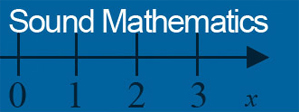Here are a few things that in my view, will prevent MOOCS from replacing Universities altogether:
1. STEM students with weak backgrounds do not understand mathematical symbols. Therefore, they cannot read the simplest mathematical texts or follow the simplest mathematical explanations. To get real education they need a teacher who will patiently teach them the mathematical language and mathematical reasoning first. Simple lecturing will not do, Socratic dialogue – the continuous two-way feedback – is a must. Most students will not be able to follow internet lecturers who have material suitable for students with strong background.
2. Automated tests have a value but this value is limited. To make sure that students get education and not simply meaningless “degrees” they have to be encouraged to learn the material and not just train themselves to exams by studying previous exam papers.
3. When I was giving my students home assignments, many (too many) simply copied from others. I came to conclusion that assignment marks were quite useless. Only once did I have a student use a substitute coming to sit an exam, but even that happened.
4. As a student at an elite University I learned most not from lectures or tutorials but from other students or aside remarks made by teachers. Internet forums will hardly be a substitute. Look at all the trolls frequenting internet forumsand stifling most interesting debates.
Having said all that, I hope MOOCS will encourage better teaching.




Tonya0says: The first kind of ‘knowledge’ can be delivered ectnfieifly on a mass scale using information transmission, automated testing, etc. The problem is though that these jobs are increasingly being replaced by either cheap labour or increasingly by machines. To develop the second kind of outcomes, learners need interaction with other learners and experts, qualitative assessment by subject experts, and a rich learning environment.